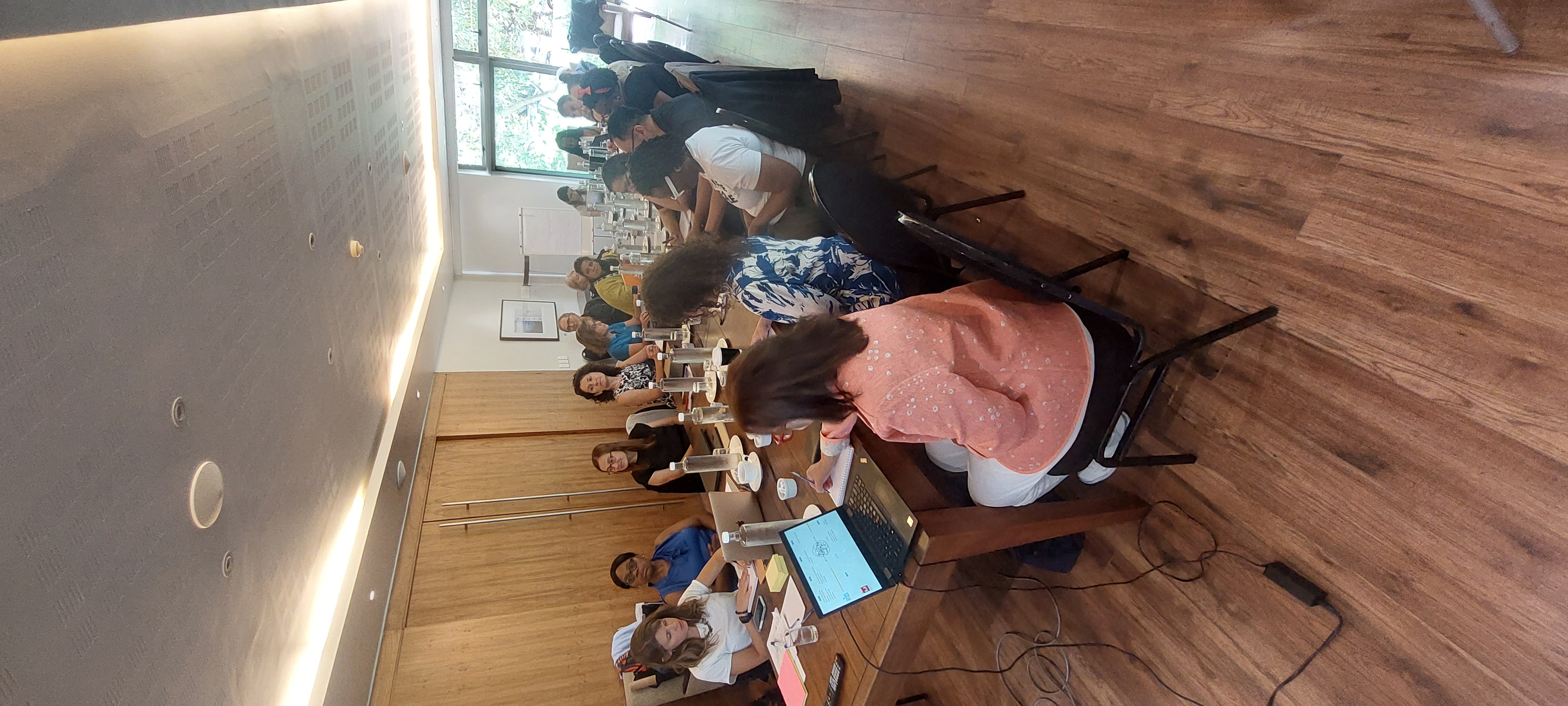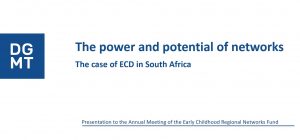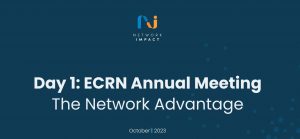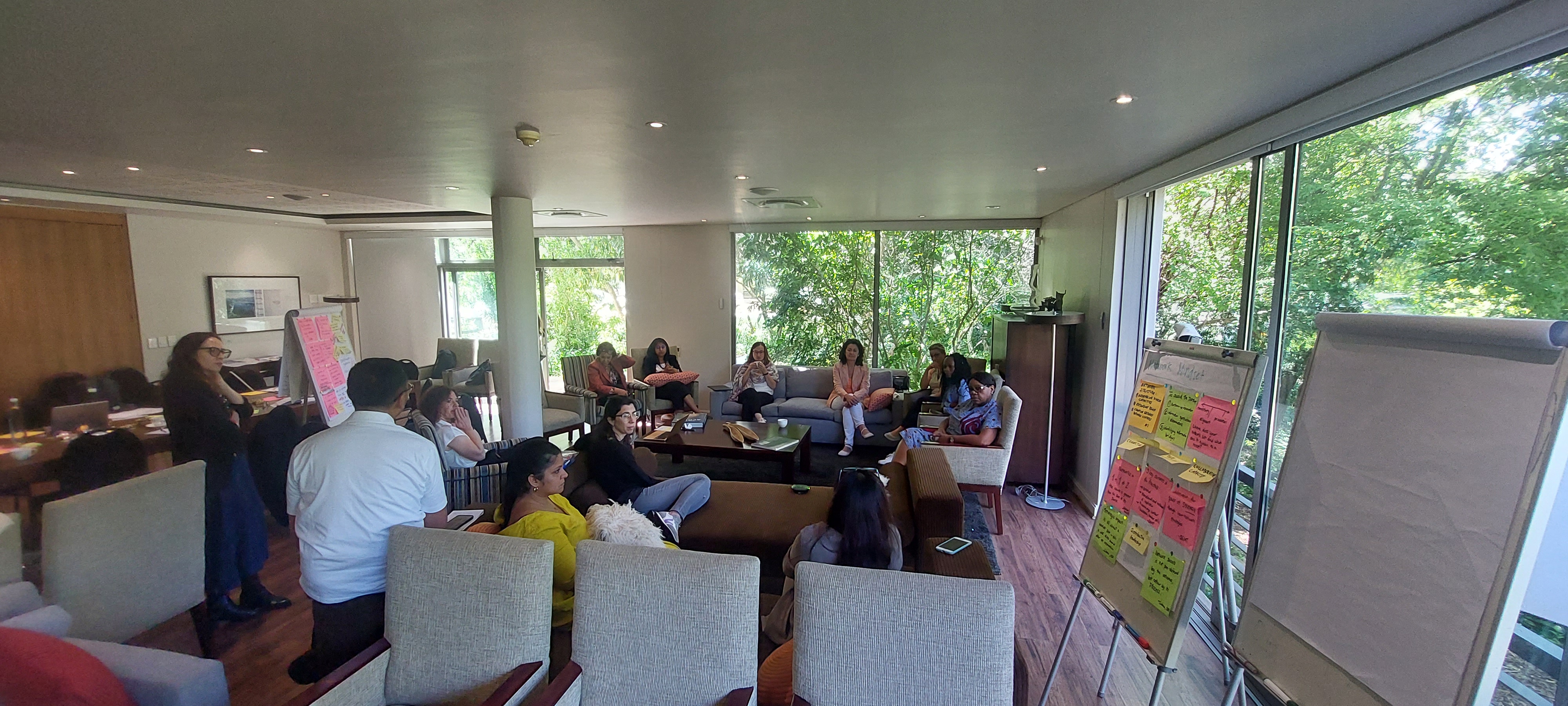Thematic Workshops: Deep dives into two cross-cutting issues
The ECRN Fund has just launched two new thematic funding streams: Male Engagement in Early Childhood, and Young Children in Crisis, and the Annual Meeting was the first opportunity to dive into these themes together. The thematic workshops were designed to generate tangible ideas for how ECD networks can catalase, strengthen and promote approaches on these themes, either individually or collectively.
Thematic Workshop 1: Fatherhood & Male Engagement in Early Childhood
Simone Gregor, ECD lead at
Heartlines introduced why male involvement in early childhood is critical for the development of the child, which leads to improved mental health and cognitive development and violence reduction in the household. Networks are well-positioned to improve, diffuse and adapt existing interventions to effectively reach and engage more fathers.
As part of the session design, participants identified problems and network solutions. For example:
Problem (1)
Disengagement of male caregivers and fathers in early childhood due to gender norms around the traditional role that women play in the family, especially young children.
Network solution (1)
- Support national networks to overcome traditional gender norms in the society through awareness raising in the early childhood workforce and advocacy/policy change, especially at municipal level.
- Team up with networks that look beyond ECD. Gender transformation starts in early childhood but continues throughout generations - how can we ensure that we’re all working towards the same end, regardless of the specific age that we are targeting?
- Work with traditional gate keepers like teachers, workforce, etc. Gate keepers depend on the context and in some regions this might be the church, for instance.
Problem (2)
Lack of family-friendly policies and limited opportunities for fathers to be around because of work requirements and in some cases, work-related migration.
Network solution (2)
- Engage the private sector by promoting parental leave for fathers and making the economic case (return on investment).
- Support regional networks to connect global and regional learnings and efforts and look at best practices and existing solutions.
- Explore and expand ECD workforce opportunities for men.
Thematic Workshop 2: Young children in crisis
Neil Townsend, Executive Director from
Moving Minds Alliance, shared some insights on the barriers and opportunities to ensuring ECD is prioritised in humanitarian preparedness, response and recovery. Among the main barriers, Neil highlighted the centralized and sector-based approach to humanitarian response, the lack of funding to the grassroots, and that systems don´t center children and caregivers during crisis. Neil shared that networks can address these barriers by working together as inter-connected networks, build movements among their grassroots partners and support emerging good practices and test new approaches.
Also during this session participants identified problems and network solutions. For example:
Problem
Ineffective interventions and lack of sustained support during protracted crisis.
Network solution
- Look at emerging crisis as examples and invest in building resilient systems by focusing engagement on local players.
- Explore what networks have done effectively to support crisis and what are the key lessons learnt during crisis (e.g. during earthquake, floods, wars, etc.). Based on these learnings, work on plans for the future so that networks can have the tools to respond quickly.
- Improve member communication during crisis. What is the best way to get data and engage local member organisations?




